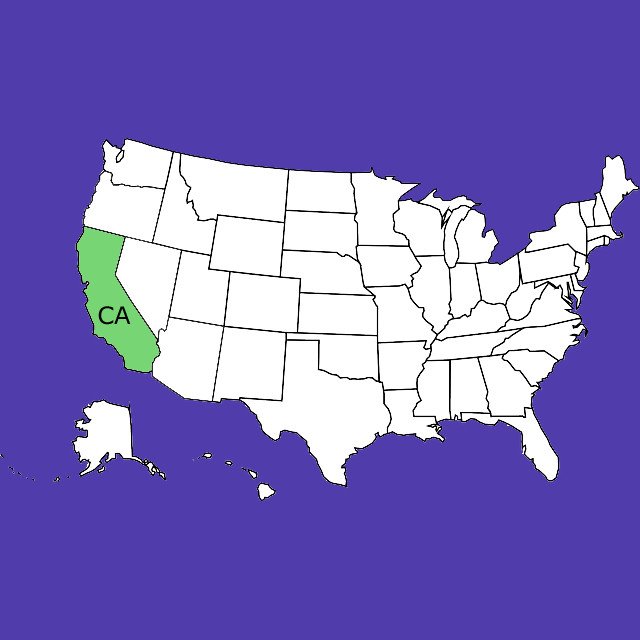
June McLaughlin, Esq.
Contracts involving the business of cannabis contain arbitration clauses and rightly so. Contemplating their drafting to the benefit the parties to the agreement, consider MCB Valley Properties, LLC. et al. v. Mary V. Etter, et al.[1] In this unpublished opinion, nevertheless interesting and useful, the Court of Appeals for the First District of California denied a Cannabis company the ability to arbitrate claims arising from a lease. The case involved a complex Cannabis venture including the rental of land in Honeydew, California for cannabis cultivation. The tenants, MCB Valley Properties, LLC (MCB),[2] failed to pay rent for over 1 year. The lease contained a remedies clause that the Landlord resorted to, beginning an unlawful detainer action. An arbitration clause was also included in the lease document. The tenants moved to compel arbitration. The Humboldt County trial court found for the landlord, holding that the arbitration clause in the lease did not comply with California law and the transaction did not involve interstate commerce making the Federal Arbitration Act (FAA) not applicable.[3]
Background
Mary S. Etter and Mary V. Etter, owned property in Honeydew, California and leased part of it to MCB Valley Properties, LLC (MCB) for cannabis cultivation. At the same time, the Etter’s entered into a business partnership with MCB. Rent was not paid and the property became so overgrown that the California Department of Forestry and Fire Prevention inspector noticed MCB to correct fire and safety violations.[4] The Etters argued in the eviction action that the unpaid rent, taxes, and utilities totaled $178,087[5].
Whether the tenant could compel arbitration of the eviction lawsuit revolved around two provisions in the lease – a remedies and an arbitration clause. Section 22 entitled “Remedies” stated that the “Landlord may elect” to remedy certain defaults by “appropriate judicial proceeding, either at law or in equity.” It continues, stating that “each right and remedy of Landlord…shall be in addition to every other right and remedy provided for in this Lease.” Section 30(g) under the title “Miscellaneous” stated that “[any] unresolved controversy or claim arising out of or relating to this Lease shall be submitted to arbitration.”
Trial Court
The trial court denied the Motion to Compel Arbitration by MCB in short order. The court read the lease as reserving for the Etters the remedy to initiate eviction proceedings. It found that the arbitration clause in the lease was not conspicuous as required by California law.[6] The court also concluded that there was no issue tied to interstate commerce which would implicate the FAA.[7]
Upon execution of the lease, 11 other documents were executed creating a complex business venture – a partnership between the tenant and the landlord in a large-scale project of cannabis cultivation.[8] Many of those documents contained arbitration clauses similar to one another and similar to the clause in the lease. MCB trial counsel focused on the lease alone and did not describe how that agreement was incorporated in a larger group of documents primarily a Membership Interest Purchase Agreement governing the larger venture which contained an arbitration clause[9]. Additionally, many of the activities of the larger venture took place in New York, Florida, Colorado, and Illinois undermining the finding of a lack of interstate commerce. Finally, trial counsel did not request a Statement of Decision which would have produced a more detailed explanation of the trial court’s ruling.
Court of Appeals
MCB appeals and the appellate court affirmed the trial court’s decision denying arbitration. The court was guided by legal principles, primarily canons of contract interpretation compelling the court to consider the contract as a whole giving effect to every clause as well as the idea that parties cannot be compelled to arbitrate an issue they have not agreed to arbitrate. Agreeing with the trial court, that the lease as a whole did not require the landlord to arbitrate eviction proceedings, the court explains that to do so would mean:
“no dispute whatsoever would fall within the ambit of [the Remedies section]. Such an interpretation would completely foreclose the Etters from seeking any remedy for any violation through a judicial proceeding. This cannot have been the parties’ intent.”[10]
Observations
Theory of the mind concerns our ability to understand the mental states and knowledge of others based on imperfect information. The full story in this case lass is not obvious[11] but valuable observations can still be made. The intent of these observations is to help sharpen our pencils rather than schadenfreude.
To begin with, drafting of the lease needed improvement. A contract with conflicting rights and obligations of the parties can lead to brutal results since the court will seek to harmonize the various parts of the contract so that none are invalidated.
Section 22, the remedies section, appears before section 30, titled miscellaneous, therefore reading section 22 as primary will be the court’s approach when following canons of contract construction[12]. The arbitration clause in a lease should be titled as such and be conspicuous regardless of where it is situated in the document.
Additionally, MCB argued on appeal that the remedies section was permissive using the word “may” while the miscellaneous arbitration clause used the mandatory word “shall” arguing that it should apply to all disputes. In support, they cite Benihana[13] where the court interpreted a contract dispute resolution provision with permissive language. However, the appellate court in our case used Benihana against MCB. The court cited MCB’s reply brief and quoted it then dedicated the next 2-3 paragraphs of an already short opinion to discussing how its conclusions actually supported the Etter’s rather than MCB. A more robust understanding of arbitration and its benefits would surely have produced a case less vulnerable to alternative interpretation.
Final suggestions are these, Cannabis bias is a thing. The Etter’s were very successful in presenting themselves as older and helpless before the more powerful MCB and the fancy arbitration clauses.[14] Industry cohesion could become a thing as well, at least in terms of support for the arbitration of cannabis contract disputes. In fact, the cannabis industry could develop and begin to use standard arbitration clauses to assist drafters. Regardless of the specific document, when cannabis is involved the drafting must be rigorous to avoid absurd results.
[1] MCB Valley Properties, LLC. et al. v. Mary V. Etter, et al., No. A161159, 2021 WL 2678372 (Cal Ct App first District Div. 1, June 30, 2021)
[2] The business venture involved several LLC’s and a holding company. For simplicity, I use refer only to MCB Valley Properties LLC.
[3] If the FAA were applied, the validity of the clause under California law would not be dispositive.
[4] Brief for Respondent at 14, MCB Valley Properties, LLC. et al. v. Mary V. Etter, et al., No. A161159, 2021 WL 2678372 (Cal Ct App first District Div. 1, June 30, 2021)
[5] Id. MCB does attempt to pay the rent at some point much after the due dates required by the eviction proceedings.
[6] California Code of Civil Procedure (CCP) § 1298 requires highlighting of arbitration clauses, a certain font, and a clear title for the provision.
[7] FAA preempts enforceability of CCP § 1298’s requirements.
[8] Brief for Appellant at 15, MCB Valley Properties, LLC. et al. v. Mary V. Etter, et al., No. A161159, 2021 WL 2678372 (Cal Ct App first District Div. 1, June 30, 2021)
[9] See, Mleynek et al. v. Headquarters Companies, (1984) 209 Cal.Rptr. 593 (holding that interrelated documents must be viewed together concluding that arbitration provisions in a franchise agreement apply to disputes arising out of a sublease agreement)
[10]Supra 1 at 3.
[11] For example, MCB may have had a sub lessee on the Honeydew property, supra at 4.
[12] Laymon v. J, Rockliff Inc. (2017) 12 Cal.App.5th 812.
[13] Benihana of Tokyo, LLC v. Benihana Inc. (S.D.N.Y 2014) 73 F.Supp.3d 238
[14] Supra at 8.




